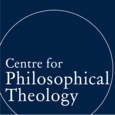Revelation cannot be approached directly. It is mediated all the way down. That is not just because of ‘sin’. Though sin is the manifestation of our alienation from God-an alienation overcome by God’s reconciling operations in salvation-a diastema between Creator and creation still pertains. There is no immediate encounter with the Word of God available to us as such. It is always mediated to us through human words and human acts, stories (biblical and autobiographical) and material practices, the Church and its liturgies, and the cultures we inhabit that shape us. The voice of the Lord comes to us in and through the darknesses and ambivalences of our various unredeemed and yet to be redeemed states. We are addressed, continually addressed, by God’s transformative grace, by his love and mercy, in and through our condition as created. The voice is accommodated to that condition, and can be accommodated because the Word of God is written into creation, coming finally, and intensively, in Jesus Christ. So the voice can be heard: makes itself available to be heard. But the eternal presence of God pro nobis (where the ‘we’ is not just humankind but all God’s creatures, pace Barth), the eternal presence of God-with-us that is the touchstone and content of revelation, bubbles up intrinsically through the obscurities of created and creative experience.



